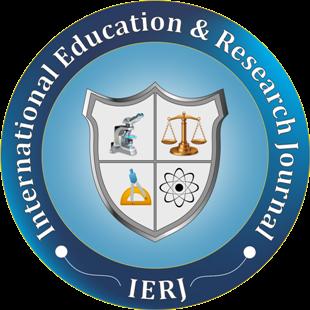TRENDS IN MODERN LITERARY CRITICISM/FUNCTION OF CRITICISM
ABSTRACT
Everyliteraturehastwoaspects.Thesetwoaspectsofliteraturemaybecalledcreationandcriticism.Creativewritingmaybedefinedasakindofwritingwhichisnew, freshandoriginal.Shakespeare'splays,Milton'spoems,Hardy'snovelsandEliot'spoeticplaysaretheinstancesofcreativewriting.Thiskindofwritinghasitsown process,itsownmovementanditsownappeal.Everycreativewriterlooksatthedifferentsectionsandcross-sectionsofhissociety;hedrawsmaterialforhiswritings fromtheseplaces;hethinksandimaginesagooddealanditisonlythenthathecreatessomething.Everykindofcreativewriting,therefore,isbothpersonaland impersonalatoneandthesametime.Criticismisdifferentfromcreation.Itisnotneworfreshororiginalinthesensecreationis.Itisderivativeincharacterbecauseit isakindofworkwhichisbasedoncreation.Criticalwritingisnotpossiblewithoutcreativewriting.Ifnothingiscreated,therewouldbenothingtocriticizeand commenton.Somepeopleareoftheviewthatcreationishealthwhilecriticismisdisease.Thisisnotacorrectandsoundattitude.Somecriticsmaybebadandsome kindofcriticismmaybeunhealthy,butthereisaninner-relationshipbetweencreationandcriticism.Thatiswhy;Eliotsaysthatcriticismisasunavoidableandas necessaryasbreathing.Therehavebeencriticsforaverylongtimenow Aristotlewasthefirstmajorcriticoftheancienttimes.Sincethencriticismhaskeptonbeing writtenwithoutanybreak.Dryden,Dr Johnson,ColeridgeandMatthewArnoldhavebeenthemajorcriticsinthehistoryofEnglishliterature.
KEYWORDS:Criticism,literature,prejudices,trends,MarxistCriticism,psycho-analytical,FrontiersofCriticism,biographicalcriticism.
EXPLANATION:
Inthemoderntimesthecriticalactivityinthefieldofliteraturehasgoneupconsiderably Moderncriticismisindeedacomplexanddifficultphenomenon.The reason is that in the present day world, criticism has got mixed up with many other branches of human knowledge and disciplines. The present century has seentheriseofdifferentschoolsofactivity T.S. Eliotdiscussessomeofthese schools in his famous essay “The Frontiers of Criticism”. The first important school of modern literary criticism may be called the school 'workshop criticism'.Theworkshopcriticismheredoesnottakeustoanyfactoryorworkshopor laboratory Thiskindofcriticismsignifiesthecriticismorcommentwrittenby one poet on the writing of any other poet. It has; no doubt, certain advantages becauseitpointsouttousindetailthemeritsandlimitationsofaparticularpoet. Butithasonegreatdisadvantage.Wheneverapoetwritesaboutanotherpoethe writesmoreabouthimselfthanaboutthepoetheissupposedtodiscuss.Moreover, workshop criticism generally turns out to be a bundle of prejudices and whims.
The second important school of modern literary criticism may be called the schoolofpsychologicalorpsycho-analyticalcriticism.Thiskindofcriticismhas itsownvalueandimportance.Psychologicalorpsycho-analyticalcriticsanalyze the character or personality of a writer They generally apply the theories of Freud,AlderandJungtothestudyofliterature.Aswegothroughthesecritical writingswegetnewsetofinformationaboutdifferentauthorsandpoets.Butthe troublewiththiskindofcriticismliesinthefactthatittellsusmoreaboutthepersonalityorcharacterofawriterthanabouthiswritings.Theresultisthatwelose sightofourmainobject.
In the modern times a political kind of critical activity has come up which is knownasMarxistcriticism.Marxistschoolofcriticismisbasedontheprinciples and theories of Marx. Marx was a great socialist thinker; he divided the world intodifferentclasses.Hespokeofclass-struggleandhesaidthatitwasnecessary tohaveaclasslesssociety CommunismisMarxisminaction.TheMarxistcritics examineliteratureintermsofcapitalismandsocialism,prosperityandpoverty, breadandhunger Theyhavenothingtodowiththetechniqueofliterature.They areinterestedinoneandonlyonethingandthatisthecontentorthemeofliterature.Ifthethemeofanoveldoesnotrefertotheclassstruggle,theysaythatitisa badnovel.Marxistcriticismhasitsownrules,itsownsetsofvalues,itsownprinciplestojudgethegoodnessorbadnessofliterature.
Thereareseveralotherschoolsofmodernliterarycriticism,suchasscholarship and criticism, historical criticism, biographical criticism, and like scholarship hasitsownapproachtoliterature.Inrecenttimesalotofbookshavecomeoutin whichitisnotactuallythepoemthatisexamined;whatisexaminedisthesource orsourcesofthepoem.Thiskindofcriticismmaybeusefulinitsownwaybutit certainly does not tell us anything important about a particular poem or novel. Historicalcriticismexaminesliteraturewithreferencetotheageinwhichabook iswrittenandperhapseverythingaboutthatageisgiven.Similarly,biographical criticismtellsusaboutthehistoryofawriter'slife,hislikes,hispointsofstrength andweakness.Butreallyspeaking,biographicalorhistoricalcriticismdoesnot helpusmuchinourstudyofliterature.
Thesedifferentschoolsofmodernliterarycriticismmayormaynothelpus.The realthingtoknowisastowhatshouldbethefunctionorbusinessliterarycriticism.Wemusttrytodeterminewhethercriticismshouldtellusmoreaboutthe writerthanabouthiswritingorshoulditconcentrateitselfcompletelyonliterature. These critics, who practice textual criticism, tell us that literary criticism shouldhavenothingtodowiththewritersandthatitshoulddevoteitselfonlyto the study of literature. The real function of literary criticism consists in two things.Inthefirstplace,itmustgiveusoneofthetruemeaningorsignificanceof literature.Secondly,itshouldtrytocreateakindofclimateinwhicharealtaste for literary appreciation is formed. In other words, the true function of literary criticism is to help us in our understanding and enjoyment of literature, it does this,itshouldbesaidtohaveserveditspurposeverywell.
Inhisessayentitled,TheFunctionofCriticism',T.S.Eliottellsusthatanalysis andcomparisonarethetwotoolsofcriticismandthatthepurposeoffunctionof criticismistoelucidatetheworksofartandthus,tocorrectthetasteofacommon reader Inhislateressayentitled,'TheFrontiersofCriticism',Eliotmaintainsthe thesisthatthebusinessofcriticismistoinculcateinusanattitudeorspiritleadingtoaproperunderstandingofliterature.Eliotfurthersaysthattrueunderstandingofliteratureorpoetryisthesameasthetrueenjoymentofliteratureorpoetry There is no basic difference between these two significant statements of T.S. Eliot because this central idea consists in the fact that criticism, true criticism should always guide us and modify our taste. In his book 'The Sacred Wood', Eliot refers us what he calls perfect critics and imperfect critics. He, thereby, meansthatthereisakindofcriticismwhichwemaycallperfectandthatthereis alsoadifferenttypeofcriticismwhichwemaycallimperfectcriticism.Thecrux ofthewholematteristhatcriticismshouldfunctionasanhonestandcompetent guidetocreation.Thisshouldbethebeginningandtheend,thesoleintentionof criticalendeavor,later

Paterisoftheviewthatcriticismistheartofinterpretingart.Itisanintermediary between the author and therefore the reader by explaining one to the opposite.Byhisspecialaptitudeandtraining,thecriticfeelsthevirtueofa masterpiece disengages it and sets it forth.According to Carlyle, criticism standslikeaninterpreterbetweentheinspiredandthereforetheuninspired, betweentheprophetandpeoplewhohearthemelodyofhiswordsandcatch some glimpse of their material meaning but understand not their deeper meaning.Wemaysaythatwiththehelpofcriticismweknowtherealmeaningorsignificanceofapieceofliterature.Thissuggeststhenarrowviewof the function of criticism. In its wider application, MatthewArnold defines criticismasadisinterestedendeavortolearnandpropagatethebestthatis known and thought in the world. He further says that criticism is an endeavor, in all branches of knowledge, theology, philosophy, scienceand arttoseetheobjectsinitself,itreallyis.Itstendencyistomakethebestideas prevail and as the ideas reach society they generate the style from which comethecreativeepochsinliterature.
Different critics and writers have expressed their opinions on the function and businessofcriticismindifferentways.Thetruth,however,remainsthattheFrontiersofcriticismistobringaboutsuchamenorientatedasmayhelpthereaders
towardsahealthyappreciationorenjoymentofliterature.
REFERENCES:
I. T S.Eliot:TraditionandtheIndividualTalent;HamletandHisProblems
II. LeonTrotsky:TheFormalistSchoolofPoetryandMarxism
III. BorisEikhenbaum:TheTheoryofthe"FormalMethod”
IV I.A.Richards:PracticalCriticism
V TheodorAdorno:CulturalCriticismandSociety;AestheticTheory
VI. E.D.Hirsch,Jr.:ObjectiveInterpretation
VII. MatthewArnold:Prefacetothe1853EditionofPoems,TheFunctionofCriticismat thePresentTime,TheStudyofPoetry
VIII.EdwardSaid:TheWorld,theText,andtheCritic;SecularCriticism
IX. TheTimesLiterarySupplement,TheNewYorkTimesBookReview,
X. TheNewYorkReviewofBooks,theLondonReviewofBooks
